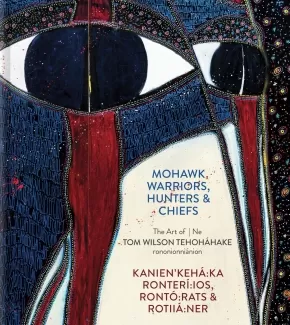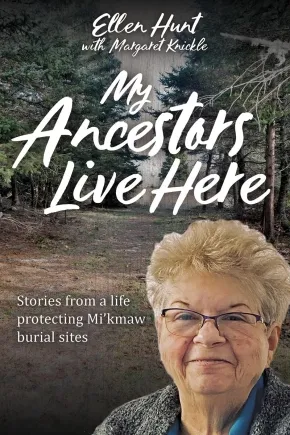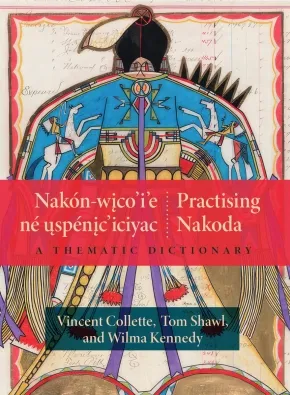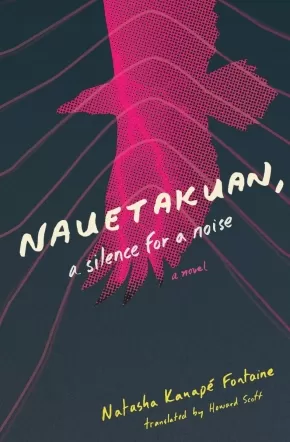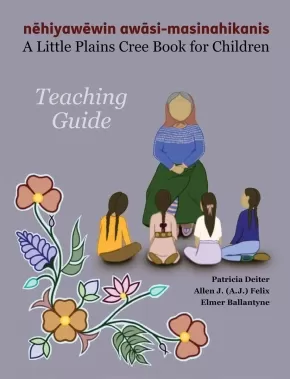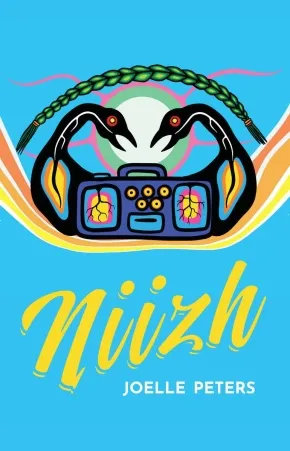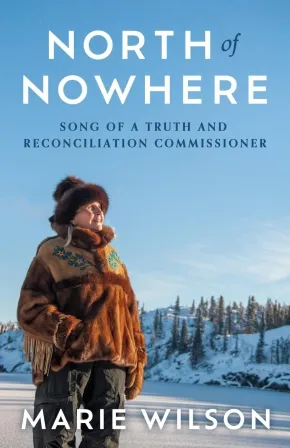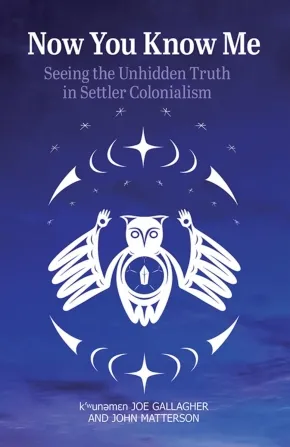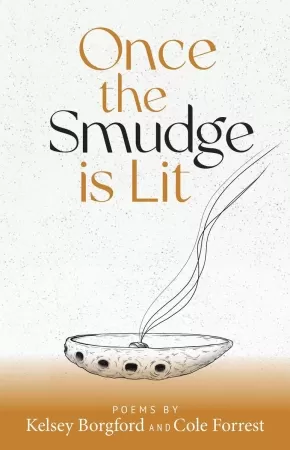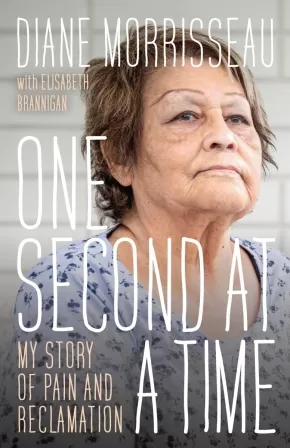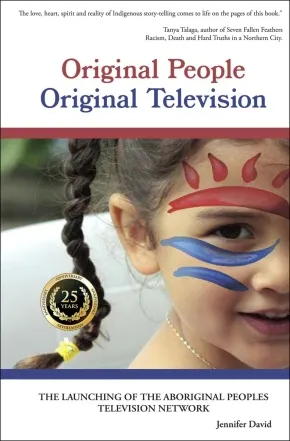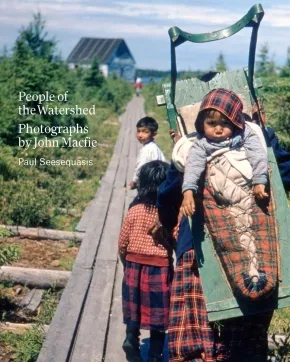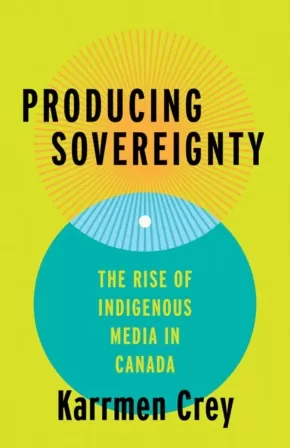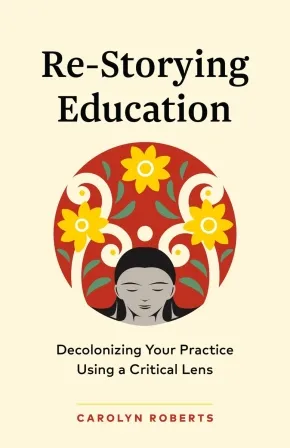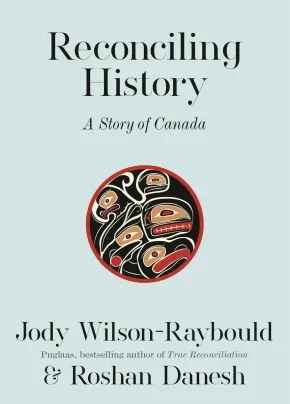
First Nations
136
-
150
of
800 Results;
Sort By
Go To
of 54
Mohawk Warriors, Hunters & Chiefs | Kanien'kehá: ka Ronterí:ios, Rontó:rats & Rotiiá:ner: The Art of | Ne Tom Wilson Tehoháhake rononionniánion
$35.00
Format:
Hardcover
Text Content Territories:
Indigenous Canadian; First Nations; Haudenosaunee (Iroquois); Kanyen'keha:ka (Mohawk);
Reading Level: N/A
ISBN / Barcode: 9781773104072
Synopsis:
Synopsis:
Tom Wilson Tehoháhake is a modern Mohawk artist, Juno Award winner, best-selling author, and newly appointed member of the Order of Canada. In his 2017 memoir, Beautiful Scars, Wilson revealed the astonishing story of how he discovered he is Mohawk. In Mohawk Warriors, Hunters & Chiefs, Wilson further explores his identity through a stunning collection of paintings that explore what it means to be removed and reconnected with your cultural heritage.
Featuring over 35 full-colour images of Wilson’s work, from guitars decorated with iconography drawn from beadwork to multimedia reflections on his upbringing in Hamilton, Mohawk Warriors, Hunters & Chiefs explores how Wilson began painting when all he knew of his identity were hints and dreams, and how his art has developed and grown over the past few years. An interview on his artistic process with Ryan McMahon and essays by Wilson and curator David Liss round out Wilson’s stunning visual exploration of his Mohawk identity.
Additional Information
88 pages | 9.00" x 10.00" | Colour Images | Hardcover
My Ancestors Live Here: Stories from a Life Protecting Mi'kmaw Burial Sites
$24.95
Format:
Paperback
Text Content Territories:
Indigenous Canadian; First Nations; Mi'kmaq (Mi'gmaq); Qalipu First Nation;
Reading Level: N/A
ISBN / Barcode: 9781459507494
Synopsis:
Synopsis:
For over twenty years, Mi’kmaw Elder Ellen Hunt has been identifying, researching and fighting to protect Mi’kmaw burial sites in Nova Scotia which have long been forgotten, neglected and destroyed.
Moved by a powerful call from her ancestors, Ellen Hunt’s work has taken her to burial sites ranging from Nova Scotia’s South Shore to Cape Breton. This memoir chronicles her childhood growing up in a Mi’kmaw community in Newfoundland and her activist work through to the present day. Ellen also shares the many challenges she has faced – from indifferent politicians to antagonistic locals.
This memoir incorporates stories about the long Mi’kmaw history of the sites Ellen has identified and the teachings of her Mi’kmaw ancestors which have shaped her life and her work.
Additional Information
6.02" x 9.01" | 20+ colour and black and white images | Paperback
Nakón-wico'i'e né uspénic'iciyac / Practising Nakoda: A Thematic Dictionary
$27.95
Format:
Paperback
Text Content Territories:
Indigenous Canadian; First Nations; Assiniboine (Nakoda Oyadebi);
ISBN / Barcode: 9781779400185
Synopsis:
Synopsis:
A user-friendly guide that teaches core Nakoda vocabulary and how to use it in conversation
Practising Nakoda contains basic Nakoda vocabulary, organized into 30 themes (such as animals, clothing, directions, and time) and divided into sections meant to enhance daily and ceremonial communication (including dances, ceremonies, and ceremonial clothing). The guide provides words for every theme from which the reader can forge a general view of word formation patterns. In a thematic dictionary, words are not organized alphabetically but are grouped according to the root element or their meaning. Since Nakoda is a polysynthetic language where words are often built up with many elements that attach to the root, this is a necessary format that enhances the learner’s “morphological awareness.” The guide will help learners identify the root of each word, along with the “morphemes,” critical to the successful learning of the Nakoda language, and the comprehension of complex vocabulary.
Reviews
"Nakón wico’i’e né uspénic’iciyac / Practising Nakoda: A Thematic Dictionary is a user-friendly dictionary created to support learners of the endangered Nakoda language. More than just a list of words, this book helps users understand how to build sentences and use the language in real-life situations, even without a fluent speaker to guide them. The chapters are organized by theme, making it easier for learners to focus on everyday topics and vocabulary. This dictionary is meant to be a practical starting point for those beginning their Nakoda language journey. It was created with the help of many different Nakoda speakers, whose voices and knowledge shaped the content. This dictionary can be used for self-study, in classrooms, or as a community resource to support language programs. Practising Nakoda is a helpful tool for anyone who wants to begin learning and using Nakoda in their daily life." - Jackie L., Educator & Indigenous Voice Consultant, Indigenous Books for Schools
Educator Information
Table of Contents
Foreword
Elements of Nakoda Grammar
Abbreviations
Greetings and Forms of Address
Human Body
Food and Drinks
Clothing and Getting Dressed
Living Arrangements
Human Characteristics
Feelings, Instincts, Emotions, and Motives
Thinking
Behaviour and Mental Disposition
Abilities and Talents
Expressing Thoughts and Feelings
Making Evaluations
Family and Friends
Social Relations
Education and Schooling
Professions and Trades
Agriculture, Gardening, and Ranching
Banking, Money, and Commercial Transactions
Leisure and Sports
Dances and Ceremonies
Spirituality and Culture
Communication
Nationalities and Settlements
Geography and Landscape
Weather, Natural Phenomena, and Substances
Fauna and Flora
Transportation and City Infrastructure
Quantities
Space and Time
Structural Words
Bibliography
About the Authors
This book is included in the Indigenous Books for Schools database from the Association of Book Publishers of BC. It is recommended for Grades 9 to 12 for Language studies.
Additional Information
216 pages | 5.51" x 7.51" | Paperback
Nauetakuan, a silence for a noise
$23.00
Format:
Paperback
Text Content Territories:
Indigenous Canadian; First Nations; Innu (Montagnais-Naskapi);
Reading Level: N/A
ISBN / Barcode: 9781771668941
Synopsis:
Synopsis:
"What's happening to you is just that the visible and the invisible are finding each other through you. You are the passageway for our reconnection. You and your generation are the ones who will give our memory back to us..."
Monica, a young woman studying art history in Montreal, has lost touch with her Innu roots. When an exhibition unexpectedly articulates a deep, intergenerational wound, she begins to search for a stronger connection to her Indigeneity. A quickly found friendship with Katherine, an Indigenous woman whose life is filled with culture and community, underscores for Monica the possibilities of turning from assimilation and toxic masculinity to something much deeper-and more universal than she expects.
Travelling across the continent, from Eastern Canada to Vancouver to Mexico City, Monica connects with other Indigenous artists and thinkers, learning about the power of traditional ways and the struggles of other Nations. Throughout these journeys, physical and creative, she is guided by visions of giant birds and ancestors, who draw her back home to Pessamit. Reckonings with family and floods await, but amidst strange tides, she reconnects to her language, Innu-aimun, and her people.
A timely and riveting story of reclamation, matriarchies, and the healing ability of traditional teachings, Nauetakuan, a silence for a noise underscores how reconnecting to lineage and community can transform Indigenous futures.
Reviews
"A love letter to residential school survivors dedicated to their descendants... To create the universe of Nauetakuan, populated by giant animals and marvelous creatures, including the thunderbird, Natasha Kanapé Fontaine was inspired by her own dreams, various native myths, and ancient legends taught to her by Joséphine Bacon." -Le Devoir
"Poet, singer, actress, and Innu activist, the talented Natasha Kanapé Fontaine has written her first hard-hitting novel this fall, which cuts through us like a lightning bolt." -Le Journal de Montréal
Educator Information
Translated by Howard Scott.
Additional Information
248 pages | 5.25" x 8.00" | Paperback
nēhiyawēwin awāsi-masinahikanis: A Little Plains Cree Book for Children—Teaching Guide
$74.95
Format:
Coil Bound
Text Content Territories:
Indigenous Canadian; First Nations; Cree (Nehiyawak); Plains Cree;
Reading Level: N/A
ISBN / Barcode: 9781778690273
Synopsis:
Synopsis:
A Little Plains Cree Book for Children—Teaching Guide contains lesson plans, student assignments, and other helpful information for teaching the Plains Cree language—a companion to nēhiyawēwin awāsimasinahikanis: A Little Plains Cree Book for Children: A Reference for Teaching the Plains Cree Language, the content of which focuses on terms familiar to the First Nations Cree people of Saskatchewan and follows curriculum for Kindergarten to Grade 12.
Educator Information
Find the companion resource here: A Little Plains Cree Book for Children: A Reference for Teaching the Plains Cree Language
A colouring book companion is here: A Little Plains Cree Colouring Book: Plains Cree People
Additional Information
128 pages | 8.50" x 11.00" | Spiral Bound
Niizh
$18.95
Format:
Paperback
Text Content Territories:
Indigenous Canadian; First Nations; Anishinaabeg;
ISBN / Barcode: 9780369105219
Synopsis:
Synopsis:
It’s summertime on the rez. The frybread is sizzling, and the local radio station plays bluegrass, Anishinaabemowin lessons, and Friday-night bingo numbers. Lenna, the youngest of the Little family, is preparing to leave home for her first year of college, with little enthusiasm or help from her stubborn father and reckless brother. Amidst lingering doubts about departing the family flock, Lenna collides into a meet-cute with the charming and awkward Sam Thomas, who is returning to the reserve after many years away. With the promise of a romance budding between them, Lenna is caught in a whirlwind of uncertainty, wondering if she’s ready to bid farewell just as she's about to take flight.
Filled with Indigenous humour, small-town seasoning, and dream-world interludes, this heartwarming love story captures the bittersweet highs and lows of a rural teenage upbringing. A love letter to community, Niizh is a refreshing coming-of-age romcom about two young lovebirds leaving the nest.
Reviews
“In Niizh, Joelle Peters offers up a profound love and simultaneous longing for family and community. She stages generational strengths—humour, caring, and insightfulness—alongside generational wounds that can keep our dearest at arm’s length. This disarmingly simple story is artfully crafted with dialogue featuring a uniquely Peters-ian dry wit. Niizh is a celebration of the joys, beauties, and challenges of a young and fiercely capable Indigenous woman.” — Tara Beagan
“I was excited about this play the first time I read it. It's smart and funny, and it's exactly what we need right now.” — Keith Barker
“Joelle can write the rez. Conveying the history, the hardship, but, more than anything, the humour and the beauty of our complicated communities. And to see those spaces on stage is a powerful thing.” — Falen Johnson
“What's most satisfying is how many themes Peters layers into the script—including the loss of Indigenous language and culture, the fear of failure of those embarking on something new and, most poignantly, the shame and anger around abandonment.” — Glenn Sumi
"Youth can relate to this coming-of-age story and how the pressures of culture, identity, and family can influence significant decisions in one’s life journey. This play can be used to support classroom exploration of themes such as identity, culture, family dynamics, friendship, loss, and how uncertainty can lead to clarity with patience and time. Indigenous humour, cultural traditions, spirituality, imagery, and contemporary realities are explored in a graceful and age-appropriate manner for high school students." - Stacey M., High School Teacher, Indigenous Books for Schools
Educator Information
This book is included in the Indigenous Books for Schools database from the Association of Book Publishers of BC. It is recommended for Grades 10 to 12 for Drama, English Language Arts, Family Studies, and Social Studies.
Content Warnings: Includes curse words and references to smoking and drinking.
Additional Information
112 pages | 5.40" x 8.35" | Paperback
North of Nowhere: Song of a Truth and Reconciliation Commissioner
$34.99
Format:
Hardcover
Text Content Territories:
Indigenous Canadian; First Nations; Inuit; Métis;
ISBN / Barcode: 9781487011482
Synopsis:
Synopsis:
The incomparable first-hand account of the historic Truth and Reconciliation Commission of Canada told by one of the commissioners who led it.
The Truth and Reconciliation Commission was established to record the previously hidden history of more than a century of forced residential schooling for Indigenous children. Marie Wilson helped lead that work as one of just three commissioners. With the skills of a journalist, the heart of a mother and grandmother, and the insights of a life as the spouse of a residential school survivor, Commissioner Wilson guides readers through her years witnessing survivor testimony across the country, providing her unique perspective on the personal toll and enduring public value of the commission. In this unparalleled account, she honours the voices of survivors who have called Canada to attention, determined to heal, reclaim, and thrive.
Part vital public documentary, part probing memoir, North of Nowhere breathes fresh air into the possibilities of reconciliation amid the persistent legacy of residential schools. It is a call to everyone to view the important and continuing work of reconciliation not as an obligation but as a gift.
Reviews
"I found Marie Wilson's North of Nowhere profoundly moving and surprisingly optimistic. With humility and wisdom, she takes us behind the scenes of the Truth and Reconciliation Commission. As a non-Indigenous woman long settled in the North, she has a unique viewpoint, and she leavens an account of the traumatic intergenerational impact of residential schools with details from her own personal story. Wilson goes beyond the grief and misery triggered by the Truth aspect of the TRC to suggest the joy and laughter that true Reconciliation can produce in survivors. But reconciliation will be achieved only if we don't look away. North of Nowhere is a powerful book that shifted my perspective, and, thanks to Wilson's lucid prose, helps the rest of us glimpse what is needed." — Charlotte Gray (CM), author of Passionate Mothers, Powerful Sons: The Lives of Jennie Jerome Churchill and Sara Delano Roosevelt
"For anyone wanting a front row seat to the Spirit, the vision, and the mechanics of the Truth and Reconciliation Commission of Canada, North of Nowhere is definitely it. Commissioner Dr. Marie Wilson recounts and celebrates the courage of everyone involved in one of Canada's most important chapters of coming to terms with residential school Survivors and their families and their communities forever changed with a policy of cultural genocide. I hope everyone reads this and finds their way to support Survivors, their families, and their communities as they continue to reclaim so much of what was stolen. What a profound and riveting read." — Richard Van Camp, author of The Lesser Blessed and Godless but Loyal to Heaven
"The long-matured work of a true elder, this magnificent book is a sober masterpiece of sacred activism. It deserves to be read by everyone aghast at the chaos and cruelty of our world. Its level decency of tone, its lucidity, its determined hope in terrible circumstances both transmit and model those qualities we all now need to build a new world out of the smouldering ashes of the old." — Andrew Harvey, author of The Hope: A Guide to Sacred Activism
"In North of Nowhere, Marie Wilson honours her vow to residential school Survivors to 'do no harm' and to bear witness to and honour their experiences. Marie has achieved her purpose to educate readers and inspire reconciliation and, most importantly, hope. 'I see you. I hear you. I believe you. And I love you'-Marie's words as a Commissioner to Survivors set the tone for this very important book." — Perry Bellegarde, former National Chief of the Assembly of First Nations
"This book is one of the best I've ever read. It made me laugh, get emotional, and helped reset my journey on the role I need to play. As a child of residential school Survivors, I was motivated to continue to learn my language and strengthen my pride as an Indigenous person. Truth must come before reconciliation; this book will empower Canadians to focus on what we can control today when it comes to implementing the Calls to Action. This book advocates for building awareness, understanding, and long-term relationships between Indigenous people and Canadians. If every Canadian reads this book, the Truth and Reconciliation Calls to Action can be achieved." — Cadmus Delorme, former chief of Cowessess First Nation
"Journalist Marie Wilson brings us into the emotion-charged rooms, the sacred spaces of Canada's Truth and Reconciliation hearings. She listens with the heart of a mother, looking into the souls of the adult Survivors standing before her and seeing the children they once were. Though she holds nothing back, in the end this is a triumphant, restorative narrative-a testament to the healing that happens when we share our deepest, darkest truths." — Judy Rodgers, founding director of Images & Voice of Hope, board member of The Peace Studio
"North of Nowhere is the story of a national soul-searching, braided with Dr. Marie Wilson's own personal story and her unique perspective as a Truth and Reconciliation Commissioner. Every page tells a story. This is a book that is bound to ignite dialogue. It has been a catalyst that has been the spark for numerous visits, deep discussions, and reflections, which is why we wanted to write a collective review. Marie's writing had us thinking and talking about the stories, truths, and wisdom shared throughout the pages. Through her writing, Marie elicits emotional and insightful responses that move us along our own journeys of understanding the truth of Canada." — Shelagh Rogers and Monique Gray Smith
"Marie Wilson is the truth keeper entrusted with the accounts of the First Nations, Métis, and Inuit children who went to residential schools, the memories of those who did not make it home and the fate of us all if we do not learn from the past. The savagery of 'civilization' comes into stark relief as children emerge from the pages to awaken the national consciousness and render the TRC Calls to Action imperative." — Cindy Blackstock, executive director, First Nations Child & Family Caring Society
"Beautifully written, Marie Wilson's North of Nowhere is a stunning work of truth, power, and wisdom. An imperative read for all Canadians to understand the layers of shrapnel left by the residential school system that will leave you with emotion and hope. Wilson is an incredibly brilliant and gifted writer." — Angela Sterritt, author of Unbroken: My Fight for Survival, Hope, and Justice for Indigenous Women and Girls
Educator Information
Curriculum Connections: Social Science, Ethnic Studies, Canadian Studies, Indigenous STudies
Additional Information
384 pages | 6.00" x 9.00" | Hardcover
Now You Know Me: Seeing the Unhidden Truth in Settler Colonialism
$24.95
Format:
Paperback
Text Content Territories:
Indigenous Canadian; First Nations; Salish; Coast Salish; Tla'amin (Sliammon);
ISBN / Barcode: 9780888397829
Synopsis:
Synopsis:
Now You Know Me tells of a journey of understanding between two old friends who grew up in different worlds in the same small town of Powell River, BC, on traditional Tla’amin land. Joe Gallagher, who is Tla’amin, and John Matterson, who is white, were friends as teenagers but went their separate ways before reconnecting 35 years later and truly getting to know each other.
As John began to listen more deeply to Joe’s history, they journeyed together through the historic events and attitudes that deeply wounded the Tla’amin and their way of life. With each conversation, John’s understanding of Joe’s life and recognition of his own unearned advantages and blind participation in racism became clearer.
In their illuminating dialogue in Now You Know Me, we learn what it took for Joe to straddle two worlds while battling racism, a traumatic childhood, and his father’s warning that he couldn’t succeed in a white world without working twice as hard. Despite ongoing suffering from multigenerational harms, Joe garnered broad respect on his way to becoming CEO of a groundbreaking Indigenous-led health organization, bringing hope and a collaborative spirit to a revolution in health and wellness for BC First Nations.
Today, John is committed to ongoing learning and allyship, while Joe is called on by First Nations leaders as well as senior leaders in health and government as an able navigator of the movement toward Truth and Reconciliation.
Additional Information
304 pages | 5.50" x 8.50" | Paperback
Once the Smudge is Lit
$20.00
Artists:
Format:
Paperback
Text Content Territories:
Indigenous Canadian; First Nations; Anishinaabeg; Ojibway; Nipissing First Nation;
Reading Level: N/A
ISBN / Barcode: 9781928120407
Synopsis:
Synopsis:
Ceremony, community and connection - the poems of Once the Smudge is Lit carry the reader into deeply spiritual elements of Nishnaabe/Ojibwe culture. Co-written by Cole Forrest and Kelsey Borgford, the poetry of Once the Smudge is Lit highlights the Indigenous experience in post-colonial times through explorations of themes ranging from love to community. Bogford's and Forrest's verses seek to open a multidimensional window into the experience of being a contemporary Nishaabe. A profound sense of movement, connection, and continuity is emphasized by Tessa Pizzale's beautifully evocative illustrations, which include a line of smudge smoke that flows from page to page from beginning to end.
Additional Information
50 pages | 5.50" x 8.50" | 50 Illustrations | Paperback
One Second at a Time: My Story of Pain and Reclamation
$24.95
Format:
Paperback
Text Content Territories:
Indigenous Canadian; First Nations; Anishinaabeg; Sagkeeng;
Reading Level: N/A
ISBN / Barcode: 9780774880978
Synopsis:
Synopsis:
Bullied and abused at the Fort Alexander Indian Residential day school, Diane Morrisseau fought back and left school at the age of fifteen. Despite her strength, a childhood of trauma and abuse led her into the arms of Edgar Olson, and by sixteen, the young Ojibway-Anishinabe woman had given birth to her first child and married the man who would become her tormentor for the next eighteen years.
For almost two decades, Diane Morrisseau was chained to a brutal husband who abused not only her, but their children. By threatening Diane with their death and hers should she ever try to leave, he ensured that she would continue to endure his cruelty. Notoriously violent, her abuser was aided and abetted by the systems of colonialism that failed to protect Diane during her childhood. Edgar was able to keep Diane and her children trapped in a cycle of violence for years, without being held accountable by law or society.
Despite this, Diane found the strength to walk away. This book is the story of how she did so, and how she rebuilt a life beyond her abuser. Through Al-Anon, Anishinabe traditional healing ceremonies, counselling, and care for others, Diane found a new path illuminated by compassion and purpose.
Diane Morrisseau recounts her traumatic history with one aim: to help other victims of violence know they are not alone, and that escape is possible. The author’s entire career, and this book, testify to her desire to extend to others the hope that eluded her in the depths of her desperate circumstances.
Devastatingly frank about the abuse she suffered, the mothering her children missed because of it, and the systems that allowed it all to happen, Diane today has reconciled the past with a present where she continues to live out the values that matter to her most.
All royalties from sales of this book will be donated to Archway Community Services.
The story of an Ojibway-Anishinabe woman who, against incredible odds, rescued herself and her children from a life of brutal beatings, sexual servitude, and almost unimaginable hardship.
Reviews
"Selected as one of the most anticipated feminist books of 2024."— Ms. Magazine
"A courageous and harrowing story. Morrisseau uses her painful personal journey to frame the horrific history of residential schools. Evocative and illuminating."
— Angela Sterritt, author of Unbroken: My Fight for Survival, Hope, and Justice for Indigenous Women and Girls
"I is, in many ways, a difficult story to read – but it is one that needs to be told. Readers will learn about a courageous woman and the circumstances that enabled an abusive relationship, and hear her message for how to recognize the situation and take steps toward a better life."— Don McCaskill, co-author of In the Words of the Elders
"A fervent call to action, an impassioned plea for compassion and empathy, and a formidable rallying cry that seeks to instigate transformation [… One Second at a Time] serves as a bridge, seeking to connect human souls through shared understanding and collective responsibility."— From the foreword by Marlyn Bennett
"Raw and brutally honest. Morrisseau bravely shares the details of her life with a violent man. Validating and inspiring, her story affirms the complicated healing journey of abuse survivors. It’s a must read for anyone working in the field of gender-based violence."— Kendra Nixon, director of Research and Education for Solutions to Violence and Abuse (RESOLVE)
"Diane Morrisseau has taken us into her confidence with her story, allowing us to truly understand as a society how the relationship between Indigenous people and settlers has created immense hardships for Indigenous people, families, and communities."— Marion Maar, professor, Northern Ontario School of Medicine University
Educator Information
All royalties from sales of this book will be donated to Archway Community Services.
Table of Contents
Foreword: A Tapestry of Truths / Marlyn Bennett
Preface
Prologue
A Note on the Text
1 A Perfect Home
2 Day School
3 Posting of the Bands
4 Mrs. Olson
5 Holes in the Walls
6 Breakdown
7 Scars
8 Breaking Free
9 Seeing the Trees
10 Freedom at Last
Acknowledgments
About the Authors
Additional Information
198 pages | 5.50" x 8.50" | Paperback
Original People, Original Television: The Launching of the Aboriginal Peoples Television Network (Special Edition)
$28.95
Format:
Paperback
Text Content Territories:
Indigenous Canadian; First Nations; Inuit; Métis;
Reading Level: N/A
ISBN / Barcode: 9781926886626
Synopsis:
Synopsis:
Original People, Original Television is the behind-the-scenes account of a little known revolution in Canadian broadcasting—a journey begun in 1922 with Nanook of the North, wending its way across generations and the width and breadth of the traditional territories of the Inuit, First Nations and Métis; culminating in the 1999 launch of the world’s inaugural Indigenous led broadcast, the Aboriginal Peoples’ Television Network.
Additional Information
282 pages | 9.00" x 6.00" | b&w photos, index, bibliography | Special Edition | Paperback
People of the Watershed: Photographs by John Macfie
$35.00
Artists:
Format:
Paperback
Text Content Territories:
Indigenous Canadian; First Nations; Anishinaabeg; Oji-Cree; Cree (Nehiyawak);
Reading Level: N/A
ISBN / Barcode: 9781773272603
Synopsis:
Synopsis:
"John Macfie's vivid and stirring photographs show a way of life on full display - the world my ancestors inhabited and that my mom fondly described to me. It is a world that, shortly after these pictures were taken, ended. So distant and yet achingly familiar, these pictures feel like a visit home."- Jesse Wente, Anishinaabe broadcaster, arts leader, and author of Unreconciled: Family, Truth, and Indigenous Resistance
While working as a trapline manager in Northern Ontario during the 1950s and 1960s, John Macfie, a Canadian of Scottish heritage, formed deep and lasting relationships with the people of the Indigenous communities in the region. As he travelled the vast expanse of the Hudson Bay watershed, from Sandy Lake to Fort Severn to Moose Lake and as far south as Mattagami, he photographed the daily lives of Anishinaabe, Cree, and Anisininew communities, bearing witness to their adaptability and resilience during a time of tremendous change.
Macfie's photos, curated both in this volume and for an accompanying exhibition by the nipisihkopawiyiniw (Willow Cree) writer and journalist Paul Seesequasis, document ways of life firmly rooted in the pleasures of the land and the changing seasons. People of the Watershed builds on Seesequasis's visual reclamation work with his online Indigenous Archival Photo Project and his previous book, Blanket Toss Under Midnight Sun, serving to centre the stories and lives of the people featured in these compelling archival images.
Reviews
"The images reflect a sensitive eye and respectful approach to a solid documentary project." - The Globe and Mail
"Shines a light on the overlooked histories of Indigenous communities in northern Ontario." - APTN
Additional Information
192 pages | 8.01" x 9.99" | 100 colour and black and white photos | Paperback
Producing Sovereignty: The Rise of Indigenous Media in Canada
$37.99
Format:
Paperback
Text Content Territories:
Indigenous Canadian;
Reading Level: N/A
ISBN / Barcode: 9781517914509
Synopsis:
Synopsis:
Exploring how Indigenous media has flourished across Canada from the 1990s to the present
In the early 1990s, Indigenous media experienced a boom across Canada, resulting in a vast landscape of film, TV, and digital media. Coinciding with a resurgence of Indigenous political activism, Indigenous media highlighted issues around sovereignty and Indigenous rights to broader audiences in Canada. In Producing Sovereignty, Karrmen Crey considers the conditions—social movements, state policy, and evolutions in technology—that enabled this proliferation.
Exploring the wide field of media culture institutions, Crey pays particular attention to those that Indigenous media makers engaged during this cultural moment, including state film agencies, arts organizations, provincial broadcasters, and more. Producing Sovereignty ranges from the formation of the Aboriginal Film and Video Art Alliance in the early 1990s and its partnership with the Banff Centre for the Arts to the Canadian Broadcasting Corporation’s 2016 production of Highway of Tears—an immersive 360-degree short film directed by Anishinaabe filmmaker Lisa Jackson—highlighting works by Indigenous creators along the way and situating Indigenous media within contexts that pay close attention to the role of media-producing institutions.
Importantly, Crey focuses on institutions with limited scholarly attention, shifting beyond the work of the National Film Board of Canada to explore lesser-known institutions such as educational broadcasters and independent production companies that create programming for the Aboriginal Peoples Television Network. Through its refusal to treat Indigenous media simply as a set of cultural aesthetics, Producing Sovereignty offers a revealing media history of this cultural moment.
Reviews
"Producing Sovereignty is a must-read for those interested in the theoretical fundamentals of Indigenous media studies. By unearthing and revealing the subjugated histories and materiality of Indigenous artists and filmmakers, Karrmen Crey provides a crucial lens into the co-constitutive production of Indigenous aesthetics as an outcome of institutional contestations."—Brendan Hokowhitu, University of Queensland
"One of the most engaging and sophisticated books in the field, Producing Sovereignty uses highly immersive case studies to locate Indigenous media within wider social movements and cultural developments in North America. Karrmen Crey speaks to the decolonizing force of Indigenous media—not only as expressions of Indigenous cultural sovereignty but as destabilizing forces within contemporary settler societies."—Marian Bredin, coeditor of Canadian Television: Text and Context
Additional Information
224 pages | 5.50" x 8.50" | 25 black and white illustrations | Paperback
Re-Storying Education: Decolonizing Your Practice Using a Critical Lens
$34.95
Format:
Paperback
Text Content Territories:
Indigenous Canadian; First Nations; Salish; Coast Salish; Sto:lo; Interior Salish; St'at'imc (Lillooet, Lil'Wat); Ch’íyáqtel First Nation (Tzeachten Nation); N’Quat’qua Nation;
Grade Levels: University/College;
ISBN / Barcode: 9781774584965
Synopsis:
Synopsis:
An invaluable resource for educators looking to actively participate in reshaping education to include historically silenced voices in the classroom.
Re-Storying Education is a process of dismantling old narratives taught in education and rebuilding new narratives that include all the voices that have created this place known as Canada today. This vital and timely book outlines how colonialism has shaped both the country and the public school system. Re-Storying Education uses an Indigenous lens, offering ways to put Indigenous education, history, and pedagogy into practice. It invites readers into an open dialogue in the pursuit of a more inclusive and just educational landscape.
Drawing from her own experiences as an Indigenous student, educator, and administrator, in public and band-operated school systems, Indigenous academic Carolyn Roberts offers a deep understanding of how to support educators with Indigenous education and to create a nurturing and inclusive environment for all students. Re-Storying Education brings wider perspectives, connections to the land and the people of this land, and a deeper understanding of how relationships to these can change the educational experience for all students.
Re-Storying Education contains valuable lesson and assessment ideas, fostering the development of a critical lens in education. Roberts offers questions for self-reflection, suggestions for professional action, recommended resources for further learning, personal stories and anecdotes, insights from her own decolonizing teaching practices, and playlists that reflect the spirit of the work and that uplift Indigenous voices.
This is a must-have resource for all educators and change-makers in education today!
Reviews
"A gentle yet thorough overview and introduction, Re-Storying Education is packed with history and context to help educators decolonize their practices. Carolyn Roberts has written an excellent resource for navigating often-fraught waters, turning potential struggle into a hopeful journey of discovery and reconciliation." — Eden Robinson, bestselling author of the Trickster trilogy
"Woven in these pages is a masterful contribution to the field of education and to those who work in educating hearts, minds and spirits. I found myself lit up, excited, eager to turn each page and also inspired to slow down, reflect and let all the beauty in the pages find their rightful place in my own learning. Carolyn invites us to go on a journey with her, to be in relationship with her as we learn, unlearn, relearn and ignite our excitement in the joy of education. Re-Storying Education is full of knowledge, wisdom, truths and stories and will influence education for generations to come." — Monique Gray Smith, bestselling author of I Hope
Additional Information
224 pages | 5.50" x 8.50" | Paperback
Reconciling History: A Story of Canada
$39.95
Format:
Hardcover
Text Content Territories:
Indigenous Canadian;
Reading Level: N/A
ISBN / Barcode: 9780771017230
Synopsis:
Synopsis:
From the #1 national bestselling author of 'Indian' in the Cabinet and True Reconciliation, a truly unique history of our land—powerful, devastating, remarkable—as told through the voices of both Indigenous and non-Indigenous peoples.
The totem pole forms the foundation for this unique and important oral history of Canada. Its goal is both toweringly ambitious and beautifully direct: To tell the story of this country in a way that prompts readers to look from different angles, to see its dimensions, its curves, and its cuts. To see that history has an arc, just as the totem pole rises, but to realize that it is also in the details along the way that important meanings are to be found. To recognize that the story of the past is always there to be retold and recast, and must be conveyed to generations to come. That in the act of re-telling, meaning is found, and strength is built.
When it comes to telling the history of Canada, and in particular the history of the relationship between Indigenous and non-Indigenous peoples, we need to accept that the way in which our history has traditionally been told has not been a common or shared enterprise. In many ways, it has been an exclusive and siloed one. Among the countless peoples and groups that make up this vast country, the voices and experiences of a few have too often dominated those of many others.
Reconciling History shares voices that have seldom been heard, and in this ground-breaking book they are telling and re-telling history from their perspectives. Born out of the oral history in True Reconciliation, and complemented throughout with stunning photography and art, Reconciling History takes this approach to telling our collective story to an entirely different level.
Additional Information
304 pages | 6.25" x 8.75" | Hardcover
Sort By
Go To
of 54

